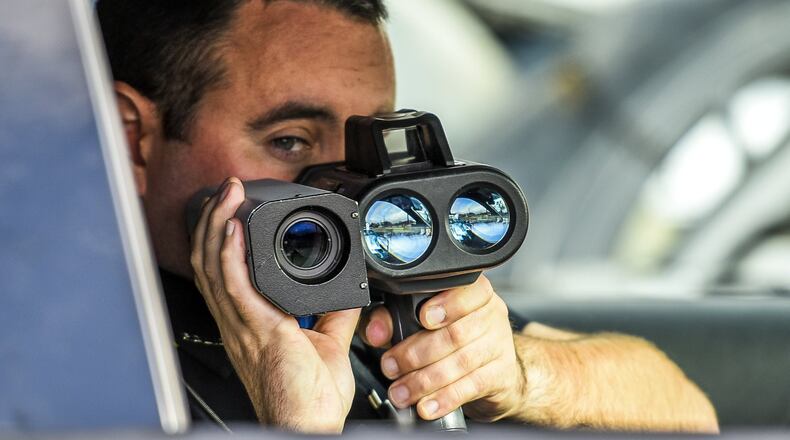The village filed notice of appeal immediately after Oster’s July ruling and asked Oster to stay payments while the appeals process proceeds. Oster put a hold payments in August.
New Miami is appealing the first decision by retired Judge Michael Sage in March 2014, which deemed the speed camera program unconstitutional, and several by Oster, including the amount owed if New Miami is found to have run an unconsitutional speed camera program.
New Miami says the judge’s insistence that the program was unconstitutional because an administrative hearing instead of a municipal court was involved is wrong. New Miami wrote the Ohio Supreme Court has ruled “‘municipalities have home-rule authority to impose civil liability on traffic violators through an automated enforcement system’ by establishing ‘administrative hearings, in furtherance of these ordinances.’”
RELATED: Judge rules on New Miami speed camera lawsuit payment: How much will drivers get?
The litigation has dragged on for five years, including three visits to the 12th District and two to the Ohio Supreme Court, where jurisdiction was denied. New Miami challenged the lower court’s rulings on class action status twice and a sovereign immunity issue. Until Oster issued his final judgment, the village could not appeal the entire case.
The village is also challenging Oster’s decision that the entire amount speeders paid must be reimbursed, rather than the $1.8 million that actually went into village coffers. Third party contractor OptoTraffic kept 40 percent for administering the program. New Miami’s outside counsel James Englert has maintained if the speeders want to get the other $1.2 million, they need to sue OptoTraffic.
“A final judgment for equitable restitution must be limited to the amounts actually received by the village,” the brief reads.
The village took it one step further, saying only the people who contested their tickets through the administrative hearing process should receive refunds, if the three-judge panel finds the speed camera program unconstitutional. Some decisions have held lawsuits should be a last resort, only after all other options are sought.
Those speeders represent less than one percent of the estimated 33,000 plaintiffs in the class action and paid $10,728.
Englert told the Journal-News the key to this appeal is that the village can finally argue the constitutional due process issue to the appeals court.
“The most important piece is the due process issue, that’s what we really want to win on,” he said. “Because for one, our process is vindicated. We always thought that met constitutional due standards. Other courts have upheld that and we want to be upheld outright and that would also mean that there are no damages.”
MORE: New Miami asks judge to rule against state, allow speed camera program to resume
The speeders are filing a cross appeal in the case over the interest amount awarded and the fact Oster didn’t make the village pay immediately. Heinstead set a 10-year payback schedule. That brief is due next week.
The final judgment is $137,170 shy of what the speeders’ attorneys say the interest amount should be. Josh Engel, one of the speeders’ attorneys, estimated interest at $560,823. He said it should have started accruing when the first ticket was paid. Oster set the interest amount at $423,653, the interest clock started ticking the day of his final judgment.
“The common thread of these issues is that a village should not be permitted to benefit from passing unconstitutional laws,” Engel said. “As it stands now, the village would have the use of motorists money in some cases for over a dozen years before have to make repayments. That is not equitable.”
The speed camera case is also on another Butler County court docket. The village has asked Common Pleas Judge Greg Howard to issue a temporary restraining order and injunction against the state over punitive new laws that have curtailed their program. Howard held a hearing in September but has yet to rule.
About the Author
